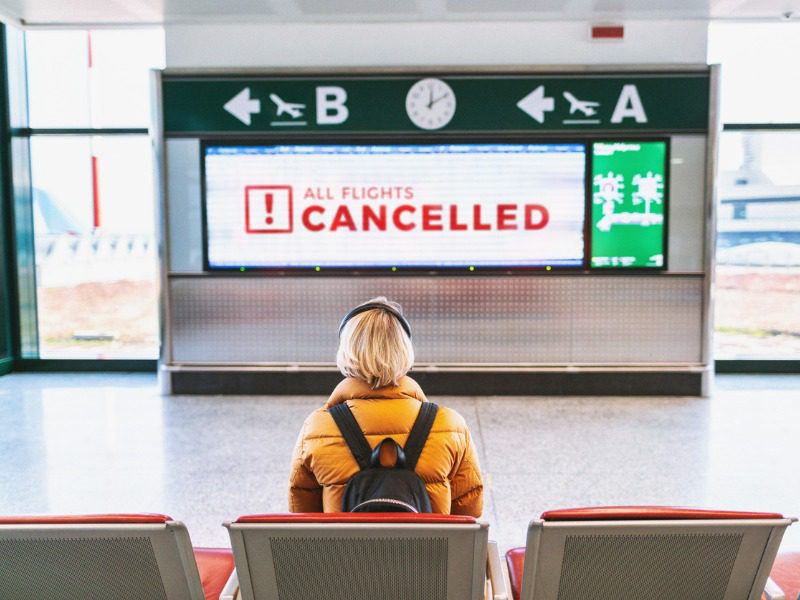Hard market in travel insurance taking flight

Business and leisure travel may have resumed post-pandemic, but massive flight delays and cancellations will result in a hard market for travel insurers and unprofitability for their overall credit profiles, according to new commentary by credit ratings agency DBRS Morningstar.
Even though airplane travel remains below pre-pandemic levels in 2019, staff shortages, strikes and labour actions, increased operational requirements, baggage losses and fleet reductions will see travel insurers operating at a combined ratio of more than 100%.
“With many airlines and airports around the world facing extremely high levels of flight cancellations and delays in recent months, we expect that the travel insurance industry will experience combined ratios over 100% due to the increase in insurance losses, making this business line unprofitable for most insurance companies in 2022,” says Marcos Alvarez, senior vice president and global head of insurance at DBRS Morningstar, in a press release.
Travel insurance most often covers, among other things, trip cancellation, trip interruption, travel delay, baggage or damage loss, medical evacuation and repatriation, rental car collision damage and legal expenses.
“Even if airlines manage to accommodate passengers with cancelled flights at a different time or fully refund the ticket cost, travel insurance policies are likely to be triggered,” the DBRS commentary reads.
“In such cases, many policyholders will claim under their trip cancellation or trip interruption coverages any related nonrefundable travel costs such as connecting flights with a different airline, as well as prepaid hotels and car rentals.”
Canada’s largest airline, Air Canada, announced it would cancel more than 9,500 flights over July and August—accounting for approximately 15% of its scheduled flights over the summer months.
The jump in claims and the collapse of global travel that insurers experienced amid the pandemic will “compound the problems” of the current, ongoing strain of flight delays and cancellations.
However, despite “substantial” travel insurance losses, the financial strength of insurance companies should remain manageable thanks to insurers’ diverse portfolios, DBRS Morningstar predicts.
“Most travel insurance is underwritten by large insurance companies with solid product and geographic diversification, which mitigates the risk of failure due to abnormally high travel insurance losses in a given year,” the commentary reads.
“For most of the largest travel insurance providers, travel insurance typically accounts for less than 5% of their total gross premiums written.”
But given the expected losses, the hard market will lead to more expensive travel insurance in the short term.
DBRS Morningstar also suggests travel insurers could stop providing trip interruption and cancellation coverages, instead focusing on medical coverage, although “such a strategy will be only a temporary restriction as airline and airport performance improves over the upcoming months.
“However, some insurance companies could exit or substantially decrease their exposure to the travel insurance business, given the volatility in profitability since the beginning of the pandemic,” the commentary reads.
Feature image by iStock.com/da-kuk



